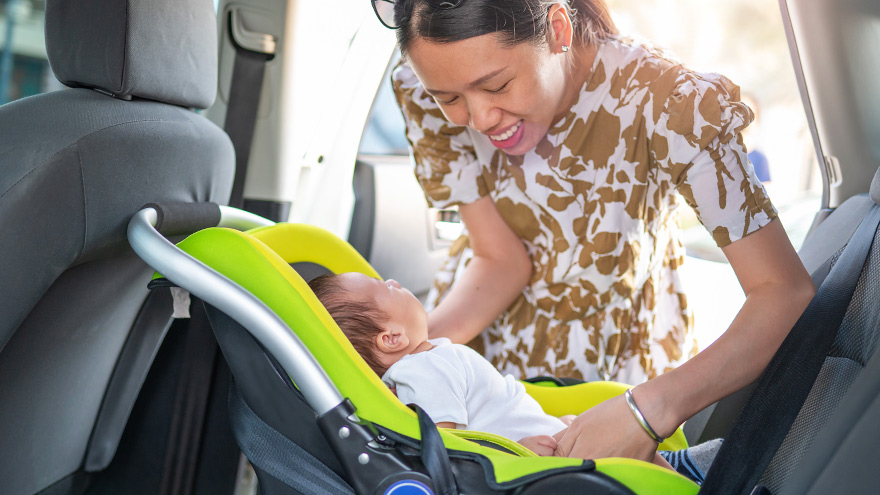Search
Results for 'emergency'
Clear-
How to Protect Your Kids from Heatstroke
Summer is around the corner, bringing heightened risks of heatstroke, especially for children who cannot regulate their body temperature as efficiently as adults. Infants are particularly vulnerable and may not express discomfort, so never leave a child unattended in a vehicle. Top Tips for Preventing Heatstroke Reduce the number of deaths from heatstroke by remembering to ACT. Avoid heatstroke-related injury and death by never leaving a child alone in a car, not even for a minute. And make sure to keep your car locked when you’re not inside so kids don’t get in on their own. Create reminders. Keep a stuffed animal or other memento in your child’s car seat when it’s empty, and move it to the front seat as a visual reminder when your child is in the back seat. Or place and secure your phone, briefcase or purse in the backseat when traveling with your child. Take action. If you see a child alone in a car, call 911. Emergency personnel want you to call. They are trained to respond to these situations Keeping Your Baby Cool in the Back Seat In hot weather, it is crucial to keep your baby cool and hydrated by using a car seat cover or towel over them to reflect the sun's rays. Dress your baby in lightweight clothing that covers their arms and legs. Keep an eye on your baby's skin color. Move them to a cooler place if they look too red or flushed. Keep the temperature at a comfortable temperature for you, not for your child. Keep the windows cracked open for ventilation and ensure nothing is blocking the airflow from entering or exiting the vehicle. Dress your infant appropriately for their environment, including appropriate head and neck coverings, to keep them cool and protected from sunburns. Ensure you have enough fluids to last an hour before getting out of the car or use bottled water if possible. Never leave your child unattended in a car. Steps to Follow if You Suspect Heatstroke Call 911 immediately. Cool the victim – Get the person to a shady area, remove restrictive clothing and cover skin with sheets soaked in ice-water, and place ice packs in the arm pits and groin. Have the victim drink cool fluids, preferably an electrolyte-containing sports drink. Monitor body temperature with a thermometer but stop cooling efforts after temperature has dropped to 102 Fahrenheit. Baby Safe Classes These classes help prepare parents for emergencies that may occur in baby’s first year. Safe Kids Worldwide Did you know heatstroke is the leading cause of non-crash related fatalities in children? “On average, every 10 days a child dies from heatstroke in a vehicle. In more than half of these deaths, the caregiver forgot the child was in the car.”
-
How to Navigate the Baby Formula Shortage
With the ongoing baby formula shortage in the United States, many parents are questioning how they can safely feed their babies and keep them healthy. Pediatrician Karen Wagner, APRN with Renown Medical Group answers some questions on what to do (and not to do) during this challenging time. What if I cannot find my baby’s formula in any stores or online retailers? If you run out of the formula you give your baby and are unable to find it through any trusted retailers, you should start by calling your baby’s pediatrician for recommendations on other safe feeding alternatives. Many pediatricians are advising that, as long as your baby has no special diet or medical needs, they can be switched to a different kind of FDA approved baby formula, if it’s purchased from a well-recognized distributor and not through an auction site or an individual you don’t know. It’s also important to make sure the formula is not expired, as it may no longer be safe or have the correct levels of nutrients. Can I make my own baby formula? Or can I dilute the formula I have? No, it is very dangerous to attempt making your own formula, as it can lead to infection and will not have the right amount of nutrients your baby needs to develop and grow. It’s also unsafe to dilute your formula supply, as doing so will cause a lack of nutrients which can lead to your baby having severe health issues down the road.

